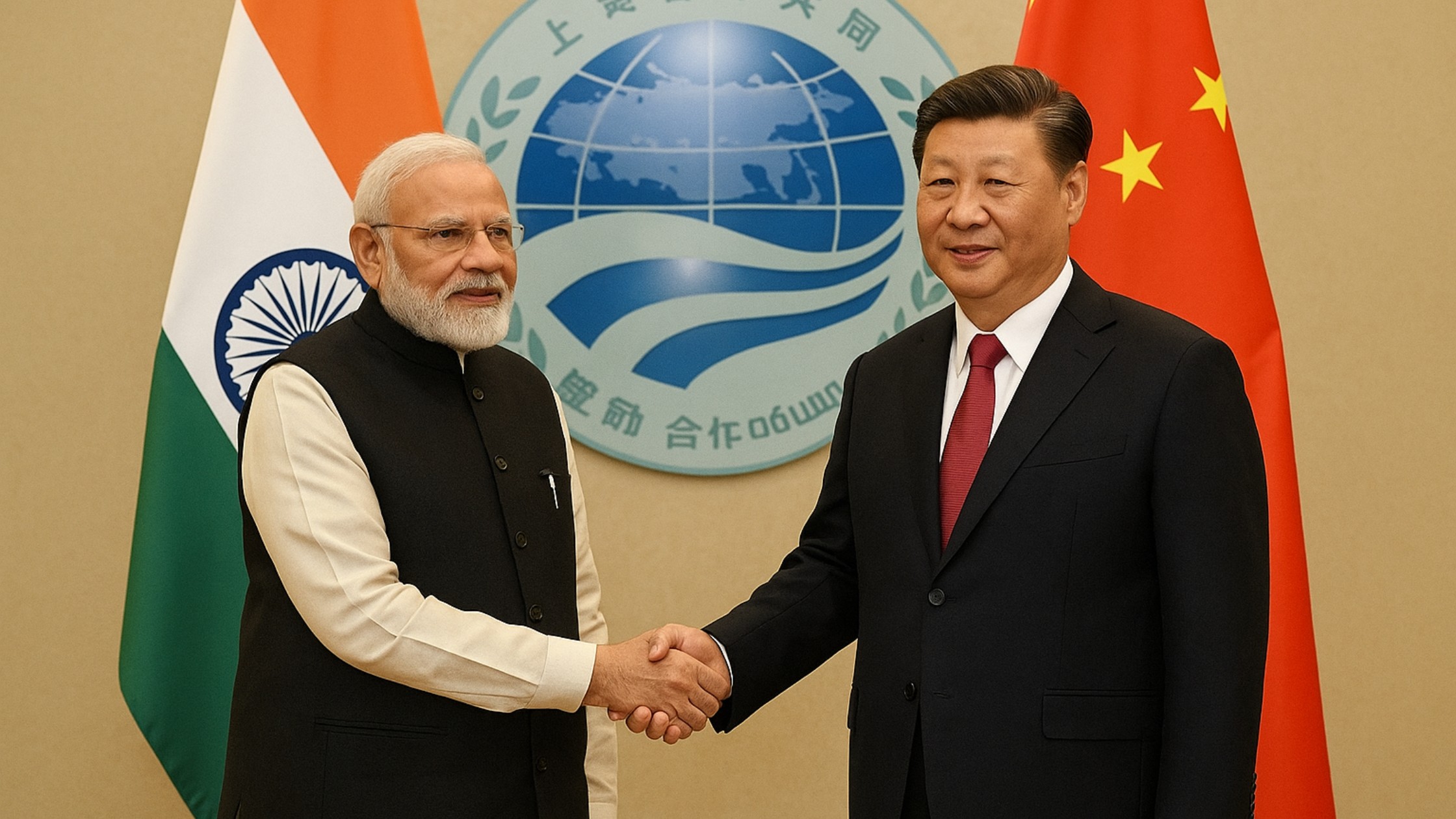Article Body
Modi meets Xi and Putin in China | India’s New Geopolitical Strategy
A Landmark Diplomatic Encounter
In a high-profile diplomatic event in China, Prime Minister Narendra Modi met with Chinese President Xi Jinping and Russian President Vladimir Putin, signaling India’s evolving role in global politics. The trilateral meeting is being seen as a strategic reset in Asia’s power balance, as India seeks to chart an independent and influential geopolitical path.
The Context – Why This Meeting Matters
Venue and Timing
The leaders gathered in Beijing on September 3, 2025, amid global uncertainty marked by the Ukraine war, tensions in the Indo-Pacific, and shifting economic alliances.
India’s Strategic Position
For years, India has carefully balanced its ties with both Russia and the West, while navigating its complex relationship with China. Modi’s presence in Beijing alongside Xi and Putin underscores India’s desire to assert itself as a bridge between East and West.
Key Agendas Discussed
Economic Cooperation
Talks reportedly focused on trade, energy, and technology partnerships. India emphasized the need for resilient supply chains and greater collaboration in renewable energy, while Russia pushed for deeper cooperation in oil and defense.
Security and Regional Stability
With tensions rising in the Indo-Pacific and continuing instability in Ukraine, Modi urged the leaders to promote dialogue over confrontation. His call for “multipolar cooperation” highlighted India’s stance against blocs that divide the world.
Global South Leadership
India positioned itself as a voice for the Global South, stressing the importance of development, fair trade, and climate finance. This aligns with Modi’s long-term goal of portraying India as a champion of emerging economies.
India’s Balancing Act
India’s presence at the meeting demonstrates a delicate but bold strategy:
-
With Russia, India maintains defense and energy ties.
-
With China, it continues to navigate border tensions while keeping economic engagement alive.
-
With the West, India remains a trusted partner through platforms like the Quad and trade agreements.
This trilateral diplomacy reflects India’s attempt to avoid being tied exclusively to any bloc, instead shaping its own geopolitical identity.
Symbolism and Reactions
Symbolism in Optics
Images of Modi seated with Xi and Putin carried strong symbolic weight. They projected India as an equal power at the global table, capable of engaging with rival powers while safeguarding its interests.
International Reactions
-
The U.S. and EU are watching closely, wary of India’s closeness with Russia and China.
-
South Asian neighbors see the meeting as a sign of India’s growing influence.
-
Global analysts note that this could mark a new era of Asian diplomacy.
A Defining Moment for India’s Foreign Policy
This meeting highlighted three key outcomes:
-
India is no longer a secondary player but a central voice in global affairs.
-
Modi’s diplomacy reflects strategic autonomy — maintaining ties with all major powers without being dependent on any.
-
The meeting signals that India seeks to shape, not just follow, the global order.
Conclusion
Prime Minister Modi’s meeting with Xi Jinping and Vladimir Putin in Beijing will likely be remembered as a watershed moment in India’s foreign policy. By engaging with two of the world’s most powerful leaders while continuing partnerships with the West, India has shown that it intends to carve out its own independent geopolitical path.
As the world shifts towards multipolarity, India is positioning itself not just as a regional leader, but as a global power with a voice that cannot be ignored.
FAQs
1. Why did Modi meet Xi and Putin in China?
The meeting was part of a trilateral dialogue focused on economic cooperation, regional stability, and global multipolarity.
2. What message does this send about India’s foreign policy?
It signals India’s commitment to strategic autonomy — engaging with all powers while avoiding dependency on any one bloc.
3. How does this affect India’s ties with the West?
While the West may view the meeting cautiously, India is expected to continue its strong partnerships with the U.S. and Europe, maintaining a balanced approach.
4. What role did India play in the discussions?
India positioned itself as a voice of the Global South, advocating for development, fair trade, and dialogue over conflict.
5. Why is this meeting historically significant?
It marks the first high-profile Modi-Xi-Putin trilateral in years, symbolizing India’s rising status as a global power.


Comments